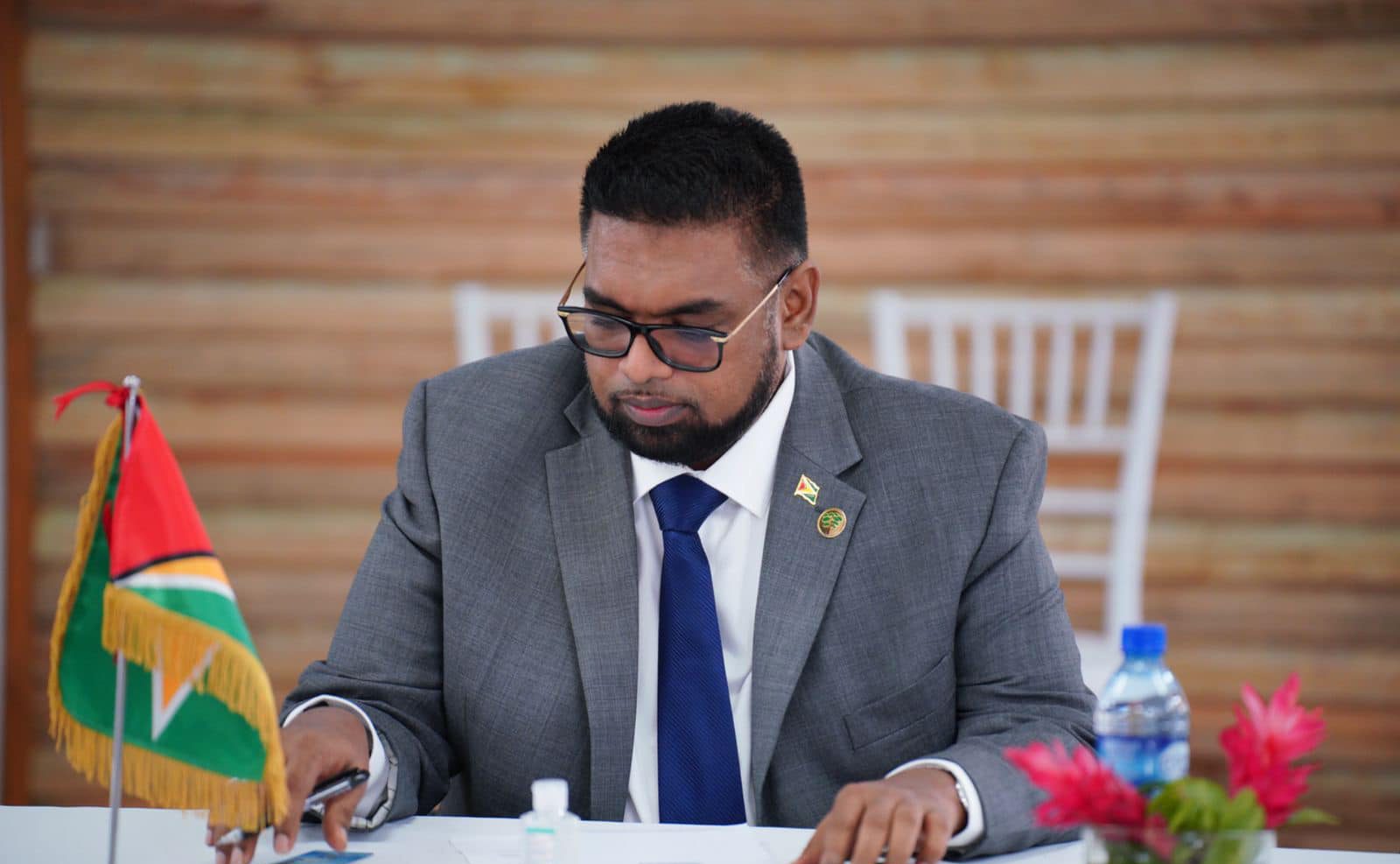Guyana’s President Dr. Mohamed Irfaan Ali underscored the need for Guyana to build long term resilience against disruptions caused by oil and gas price volatility, during an address at the commissioning of a well on Tuesday, to improve access to potable water for some 22,000 residents there.
The water bill is one of several basic costs communities in Guyana were concerned would spike due to the drastically increased price of oil caused by Russia’s invasion of Ukraine. While the President assured attendees that it will not increase water and electricity rates, he challenged greater perspective in the minds of persons with growing discomfort about rising costs of food and fuel, which are more difficult for the government to influence at this juncture.
The cost of goods and services has increased in some instances, he said, between 20% and 145%, while the cost of shipping and logistics have gone up as much as 200%.
“An increase in gas price and oil price does not only affect the input cost for every single thing but the government must manage in such an environment. So as if COVID-19 was not enough, the war in Ukraine came upon us, taking out close to 40% of global wheat production, taking the price of oil to as much as US$126 per barrel, in just one quick month, driving up the cost of transportation, cutting off supplies…”
He said governments must face this reality, and that citizens must understand too, the complexity of the environment the country is operating in. Notwithstanding these constraints, Dr. Ali said the government has still managed to do many commendable things, including expanding infrastructure, increasing public servants’ salaries and maintaining a good debt-to-GDP ratio.
But because of the issues Guyanese are facing due to increased costs, the President said the government has tremendous work ahead, and has already been having meetings to discuss how it tackles this multi-faceted issue. Government budgeted $5 billion this year to identify short term solutions to the rising cost of living. The President said they discussed government’s approach to a national consultation to be had, to identify the best solutions.
Vice President Dr. Bharrat Jagdeo, in an interview with OilNOW, rejected opposition calls to tap oil money to subsidise increased costs, arguing that the government has already budgeted this year’s allocation from the fund, and that the next withdrawal would not be until 2023, barring any emergency such as a major natural disaster as provided for in the Natural Resource Fund Act. On another occasion, Dr. Jagdeo explained that the government would prefer to spend money on projects which impacted development and the standard of living in the longer term.
On this note, President Ali reminded citizens on Tuesday about the long-term initiatives the government is implementing to build resilience, such as the gas-to-energy project and comprehensive support for the agricultural sector. The government envisions that these projects would significantly cushion the blow from oil price volatility by meeting much of Guyana’s domestic demand using its own natural gas, and reduce the Caribbean’s hefty food import bill by increasing local production.
“This world has taught us that we can no longer be dependent. We have to be as self-sufficient and sustainable as possible, especially when it comes to the supply of food and basic commodities… We are learning important lessons now that we must not leave unanswered for future generations,” Dr. Ali said.




